The C++ library part is, given that it´s really a library and not some server program, not running by itself and not listening to some socket. If a C++ lib is used in a C++ program, it´s integrated in this programs process too and not running somewhere else.
Many languages have built-in possibilites to access native C language APIs, including Node.js (with C being the de-facto standard for language interoperabilty, eg. because every somewhat important OS consists mainly of C too.). About C++ vs C, it´s not hard to write something in C++ and provide a C interface too.
In such cases, a language binding often is nothing more than something to wrap the complicated native access part in something more easy to use in the target language.
To elaborate a bit further because of the comment:
The OS itself has functions (to be used in C programs) to load C libraries on the fly, get specific functions of them and call them, without the names of lib and functions being known when the C program is compiled (eg. you could make a C program which asks the user to enter a lib name which is then used...).
Independent of that, every language is either made in a way that programs are compiled to "real" programs containing CPU instructions etc., these programs can be executed directly (example: C), or the programs of the language are made is some other format, but a "real" program is needed for every start to help the OS/CPU understanding what should be done (example: Javascript, Java.... You can´t run a program alone without having helper software installed, like a browser or the JRE).
For this second type, the helper software can make use of the lib loading functions of the OS, and if the JS/Java program contains instructions to do so... (and for the first "real" type, a certain level of compatibilty with C libs is automatically given because they use the same binary format (yes, that´s simplified))
